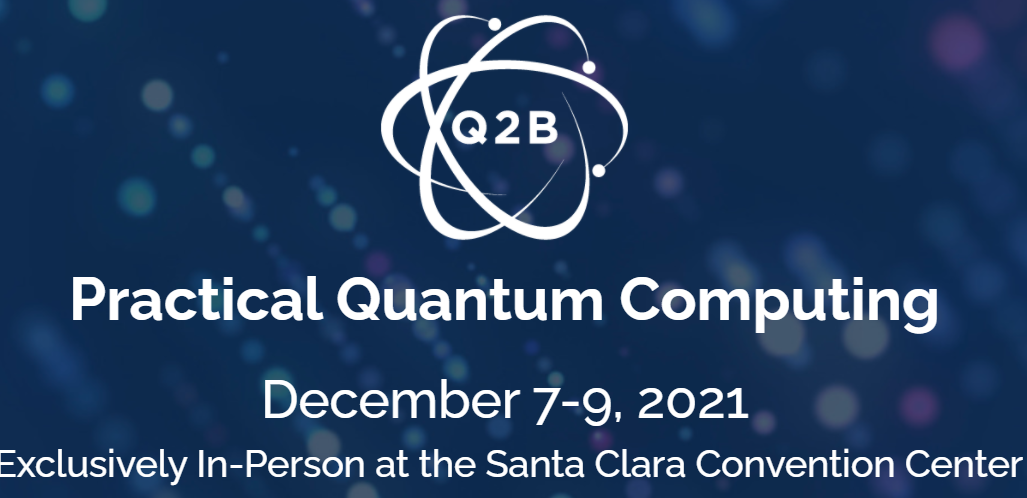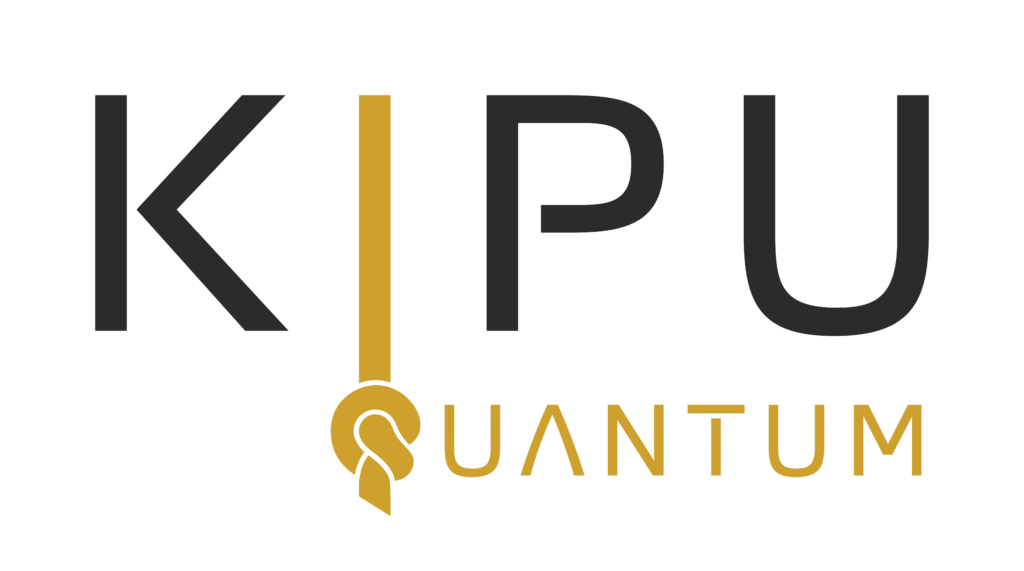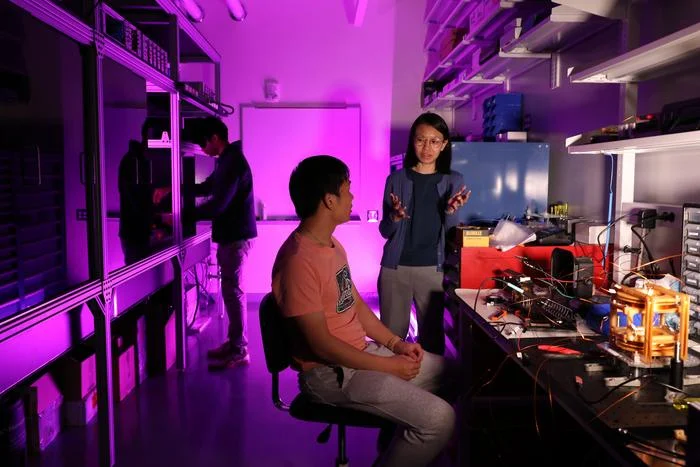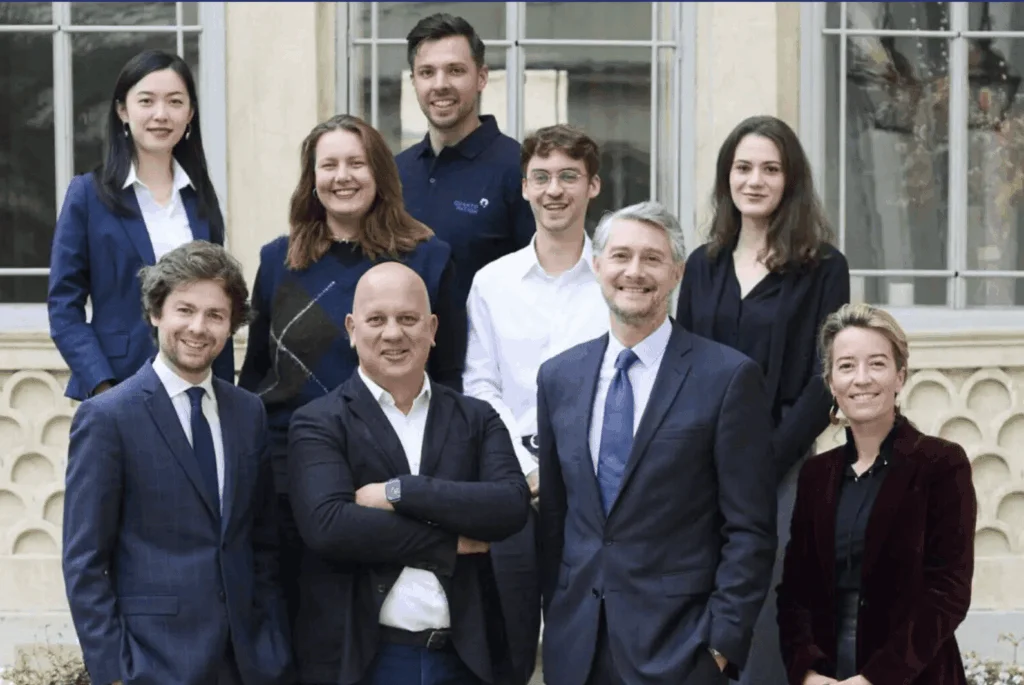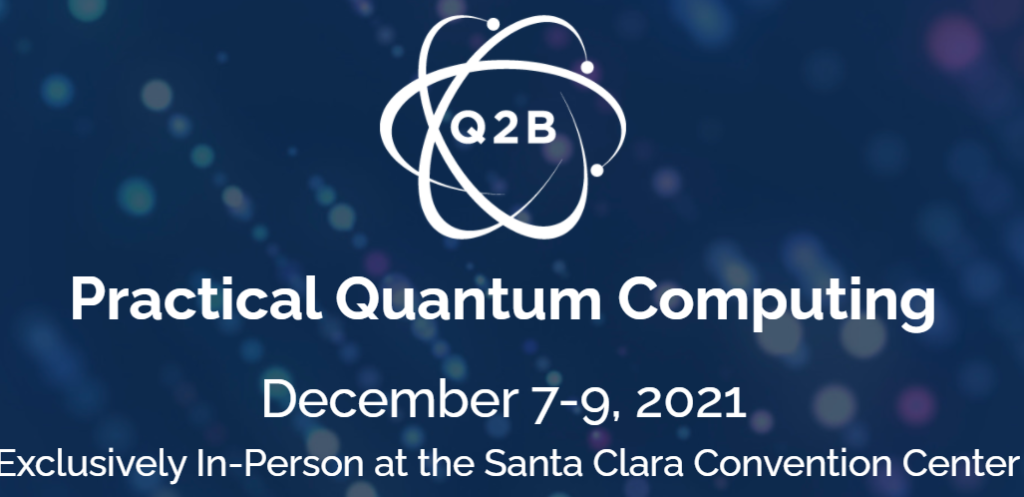
After starting the day with a breakfast only an utterly jet-lagged and meal-confused trans-Atlantic traveller can muster, COVID checks and at least one breakthrough – a swag bag with quantum socks – the true day began.
I realised quickly how unfeasible it was going to be to report on everything going on, there was clearly so much. So, instead of an account these are impressions: Some moments and memories.
The first big impression is of a focus on software and applications – with not a lot said about advances in the hardware, apart from a session on neutral atom QC which I unfortunately missed but hope to hear more about that in a super session.

The US air force kicked off the keynotes. A few slides in, and they were showing off their Innovare (sic) advancement centre- detailing impressive intentions to host ‘multiple fridges, trapped ion and photonics setups’. Their plans showed quantum devices spanning the battlefield: from distributed timing to communications and entanglement swapping, to intelligence analysis.
William Olivier from MIT next gave some startling results comparing the superiority of the 2021 Chinese USTC quantum supremacy results over the Google Sycamore results from 2019 (Quantum advantage: 10^3x Google in 2019 vs 10^7x USTC in 2021)
The middle of my day was taken up by two talks. The first, from Cambridge Quantum Computing – now Quantinuum- describing their open source TKET platform and its capabilities for improving quantum code. Broadly, it allows code to be ported across and optimised for different quantum platforms – for example, by optimising to reduce the number of noisy operations. Personally, having never programmed a superconducting quantum computer, I was surprised how different the connectivity can be between platforms, and also how even the basis gates on offer are different. TKET apparently takes care of all that.
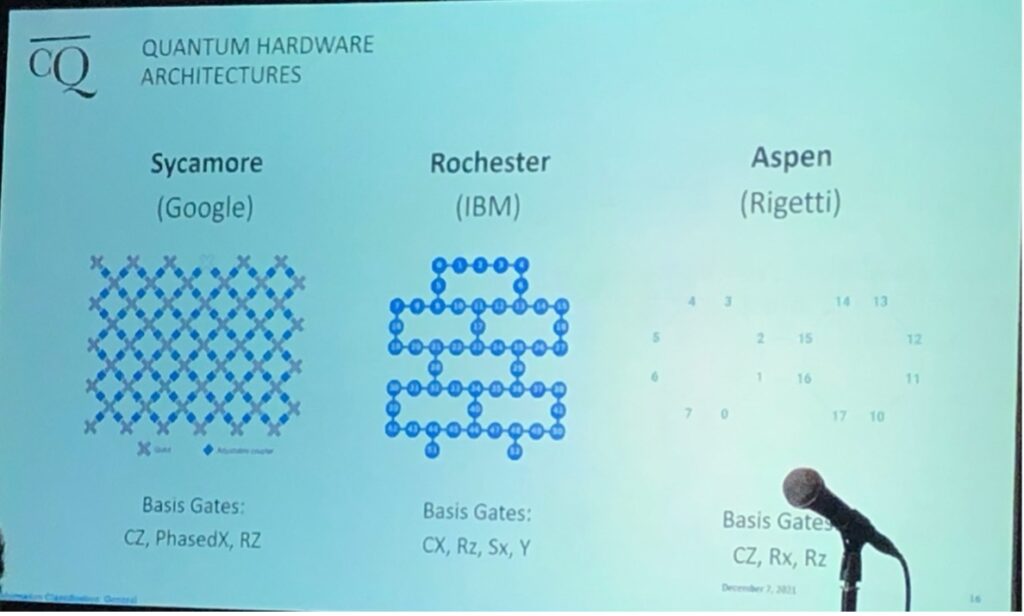
Quantum Machines followed with a similar message, but from lower down in the stack. It offers electronic control that optimises the ‘pulse level’ language and allows more seamless integration between classical and quantum resources.
It certainly all feels as if quantum machines are starting to answer my own hopes for closer hardware integration with high performance computing.
All in all, a lot of nice software was on show to help users get the most out of their code. Still, I was left unclear how necessary this code is to the different communities of users. I can still imagine a hard-core for whom the automation takes away the control of the hardware that is really needed to get the best performance.
Next on my itinerary was a talk from AWS which showed off their quantum centre at Caltech and an update on their BraKet platform. Apparently, hosting other vendor’s platforms at the same time as their own is nothing new; AWS and non-AWS processors have always been offered alongside each other.
Finally, I was surprised to learn that one large quantum company (no names here, but no prizes for guessing either) was very much not promoting quantum volume anymore as ‘it isn’t as good a metric once the system starts scaling up’.
The takeaway? Some intriguing ideas, software and perhaps a shift on quantum volume in the air. There was certainly a buzz; and a sense of everyone watching each closely whilst pretending not to. The industry does seem to be maturing, but on a few occasions, I would talk to someone new to the quantum industry. ‘I mean look at them’ said one business development person one month into his new job with a quantum company, ‘Everybody already knows who they need to talk to’.
Quote of the day: ‘Hardware is hard’- William Oliver- MIT
Fact for the day: ‘$0.5Bn of revenue was secured from quantum companies last year’ Boston Consulting Group
Biggest stand: IBM
Most attended talk: AWS
Best swag: Quantum socks!
Takehome for the day: The quality of professional tools for people to work with and optimise quantum systems has come on a long way, and is very impressive.
Richard Murray- CEO and co-founder ORCA computing and co-chair of UKQuantum: the voice of the UK quantum industry
If you found this article to be informative, you can explore more current quantum news here, exclusives, interviews, and podcasts.

